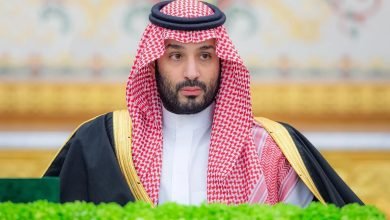
Biden Issues Historic Pardons to Jan. 6 Committee Members
President Joe Biden made an unprecedented decision to pardon key government officials and January 6 committee members before any future prosecutions. He took this historic step just hours before Donald Trump’s return to office. The pardons protected Dr. Anthony Fauci, retired Gen. Mark Milley, and members of the House committee that investigated the January 6 Capitol attack. U.S. Capitol and D.C. Metropolitan police officers who testified during the inquiry also received protection.
Biden called these investigations “baseless and politically motivated” due to growing concerns about political payback. The President stressed that these pardons didn’t suggest any wrongdoing. He noted that even unfounded investigations could destroy people’s reputations and finances. This remarkable use of presidential pardon power represents a fundamental change in executive authority because it protects individuals who haven’t faced formal accusations.
Unprecedented Use of Presidential Pardon Power
Presidential pardon power comes from Article II, Section 2 of the Constitution. This gives the executive branch broad authority to grant clemency for federal offenses. The Supreme Court’s 157-year old decision in Ex parte Garland (1866) shows that this power applies to every offense and the president can exercise it any time after someone commits a crime.
The pardon power has clear boundaries despite its wide reach. Our Constitution limits pardons to federal offenses and they can’t apply to state crimes or impeachment cases. On top of that, it prevents presidents from protecting future criminal acts.
Past presidents have issued preemptive pardons. President Gerald Ford pardoned Richard Nixon for any crimes during Nixon’s presidency. President George H.W. Bush took similar action with six Reagan administration officials in the Iran-Contra affair. Both presidents granted these pardons before any formal charges existed.
Supreme Court interpretations have shaped the legal framework for preemptive pardons. The Court maintains that Congress can’t restrict the president’s pardon authority through laws. So this power stays complete and beyond legislative limits.
Presidents can include any condition in pardons that doesn’t violate the Constitution, according to the Supreme Court. In spite of that, certain constitutional and legal factors still limit this authority, like protecting third parties’ vested rights.
Key Figures Protected by Biden’s Pardons
The broad pardons included several notable public servants who faced possible political retaliation. Dr. Anthony Fauci led the National Institute of Allergy and Infectious Diseases for almost 40 years. He coordinated America’s COVID-19 pandemic response and later worked as Biden’s chief medical adviser until 2022.
General Mark Milley received protection after serving the nation for over 40 years. He strengthened existing military alliances and documented Trump’s actions during the January 6 insurrection.
The bipartisan House January 6 panel members receiving immunity included:
- Representatives Bennie Thompson, Pete Aguilar, Zoe Lofgren, and Jamie Raskin
- Former Representatives Liz Cheney, Adam Kinzinger, Elaine Luria, and Stephanie Murphy
The pardons also covered law enforcement officers who gave significant testimony: Harry Dunn, Aquilino Gonell, Michael Fanone, and Daniel Hodges. Biden defended these decisions by highlighting these public servants’ honorable service to our nation.
The President explained how politically motivated investigations could damage the lives, safety, and financial security of targeted individuals and their families. This complete protection shows Biden’s steadfast dedication to protect these officials from what he described as “unjustified and politically motivated prosecutions”.
Legal and Constitutional Implications
Presidential pardon power serves as a vital mechanism of checks and balances over the judiciary under Article II, Section 2 of the Constitution. The Supreme Court determined that courts cannot review pardon decisions because they act as an executive check on judicial power.
Biden’s pardons have legal roots in the 1866 case Ex Parte Garland. The Supreme Court confirmed that a president’s pardon power “extends to every offense known to the law” and can be used anytime after an offense. This authority has limits though – it cannot block state law prosecutions or give immunity from future crimes.
Professor Kimberly Wehle’s book “Pardon Power” raises important concerns about preemptive pardons. She notes that presidential immunity for official acts combined with this authority could lead to executive power abuse. Courts cannot review pardons because they’re classified as judicial functions.
The Constitution gives specific roles to each branch of government. Congress makes laws, courts try cases, and the executive grants punishment relief. These unprecedented preemptive pardons show the complex relationship between executive power and judicial oversight. Many legal experts believe this action stays within constitutional limits despite its unusual nature.
California Democratic Representative Adam Schiff worries about this precedent. He warns that future presidents might give broad pardons to their staff when leaving office. This situation raises key questions about balancing presidential authority with accountability in America’s legal system.
President Biden’s groundbreaking preemptive pardons represent a defining moment for American presidential power. These pardons protect the core team of government officials, January 6 committee members, and law enforcement officers from political payback. This bold move expands executive authority in unprecedented ways.
Supreme Court decisions provide strong constitutional backing for these pardons. Their sweeping nature raises new questions about the limits of executive power. Presidents Ford and Bush Sr. issued preemptive pardons before, but Biden’s actions protect a wider range of public servants from future prosecution.
The pardons shield Dr. Fauci, General Milley, and January 6 committee members because of growing worries about politically driven investigations. Legal scholars believe these extraordinary pardons still fit within constitutional limits. This bold step protects dedicated public servants and creates a new precedent. It could transform how presidential authority and judicial oversight work together in American democracy.






